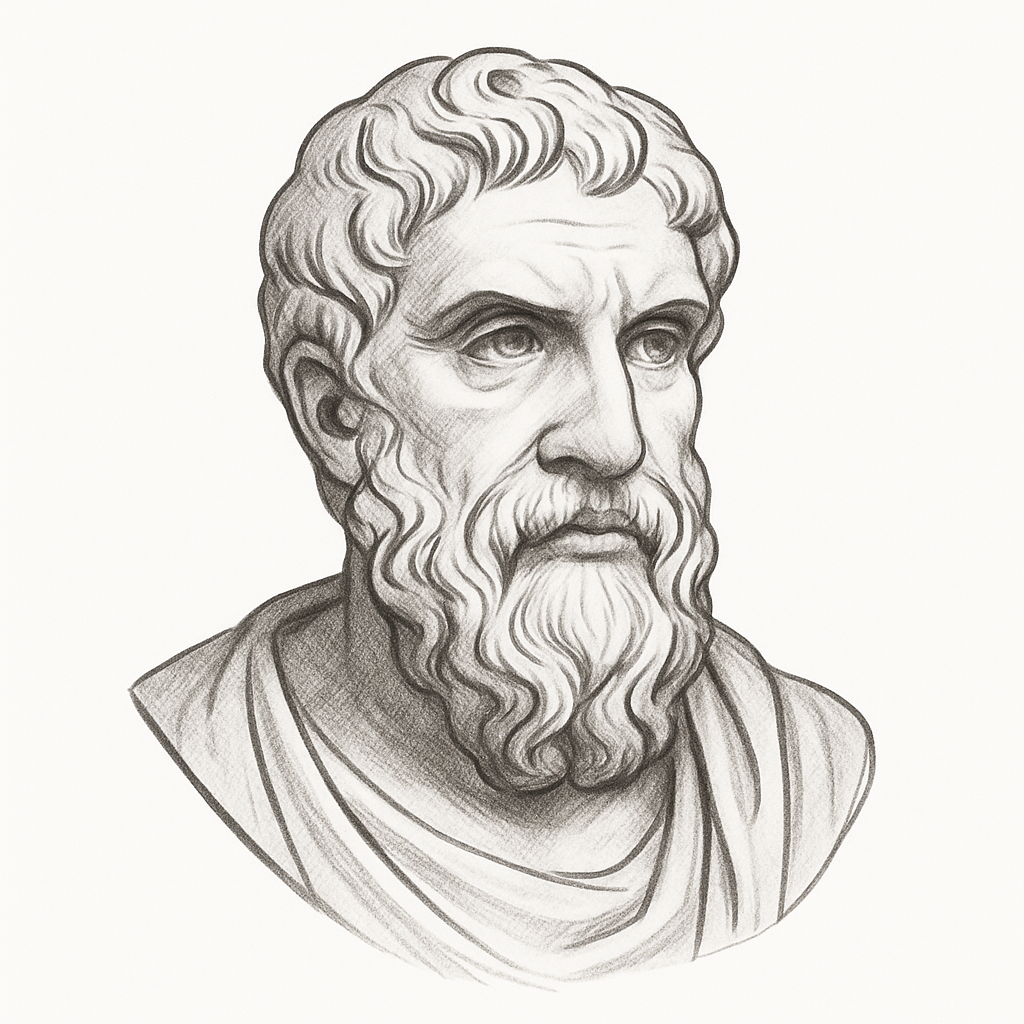How the Stoics Define Happiness
The Stoic philosophy defines happiness not as a fleeting emotion or the accumulation of external goods, but as a stable and enduring state rooted in one's inner disposition and perfected reason. This understanding is fundamentally framed through the lens of what is within an individual's control, distinguishing true well-being from circumstances that are outside of it.
At its core, Stoic happiness is characterized as an inner tranquility achieved through perfected reason (Seneca, Moral Letters to Lucilius, Chapter 92). It is understood as an absolute state, defined by its inherent quality of fullness rather than by its duration or degree (Seneca, Moral Letters to Lucilius, Chapter 85). This state stems from inner virtue, encompassing a stable character, sound judgment, and resilience, rather than wealth or public opinion (Seneca, Moral Letters to Lucilius, Chapter 45). Seneca distinguishes this genuine joy from transient pleasures, stating that "Joy is a constant state of mind arising from virtue, while pleasure is an uncontrolled emotion based on false goods" (Seneca, Moral Letters to Lucilius, Chapter 59). The pursuit of true happiness, therefore, involves focusing on these internal qualities rather than external gratifications.
The Stoic principle of control is central to this definition of happiness. It dictates that true happiness depends on one's virtue, not on the opinions or actions of others (Seneca, Moral Letters to Lucilius, Chapter 71). External factors, such as fortune, health, or social standing, are considered indifferent, meaning they are outside of one's direct control and thus cannot be the foundation of genuine well-being. Individuals are encouraged to anchor their happiness in virtue alone, precisely because these external elements are not within their control (Seneca, Moral Letters to Lucilius, Chapter 74). Seneca elucidates this further, noting that "For anyone who deems other things to be good, puts himself in the power of Fortune, and goes under the control of another; but he who has in every case defined the good by the honourable, is happy with an inward happiness" (Seneca, Moral Letters to Lucilius, Chapter 74). This perspective is powerfully illustrated by Epictetus, who challenges the listener to "Show me a man who is sick and happy, in danger and happy, dying and happy, in exile and happy, in disgrace and happy. Show him: I desire, by the gods, to see a Stoic" (Epictetus, The Discourses, Book 2, Chapter 19), emphasizing that true happiness is independent of adverse external conditions. Consequently, true wealth is found not in accumulating many possessions, but in cultivating few desires (Epictetus, The Discourses, Book 3, Chapter 9), and the foundation of a sound mind is "not to find joy in useless things" (Seneca, Moral Letters to Lucilius, Chapter 23).
Achieving this state of happiness involves actively applying philosophical principles, not merely understanding them (Seneca, Moral Letters to Lucilius, Chapter 75). It requires finding contentment by aligning one's desires, aversions, and actions with one's rational nature, rather than seeking external validation (Epictetus, The Discourses, Book 1, Chapter 21). The process of self-improvement is central, as highlighted by Socrates' sentiment, "As one man...is pleased with improving his land, another with improving his horse, so I am daily pleased in observing that I am growing better" (Epictetus, The Discourses, Book 3, Chapter 5). Furthermore, Stoic happiness is not entirely solitary; it also incorporates a social dimension, advocating for living for others with the understanding that one's well-being is connected to theirs (Seneca, Moral Letters to Lucilius, Chapter 48). Self-reflection on one's conduct, particularly regarding acts of friendship and social responsibility, is presented as conducive to happiness (Epictetus, The Discourses, Book 4, Chapter 6).
The Stoic understanding of happiness, as described through these principles of inner tranquility, virtue, and rational alignment, aligns with the concept often referred to as Eudaimonia. While the specific Greek term "Eudaimonia" is not explicitly used in these texts, the comprehensive description of true happiness as a life lived in accordance with virtue and perfected reason—a state of flourishing that is independent of external circumstances and solely dependent on what is within one's rational control—is synonymous with the classical philosophical concept of Eudaimonia. This state is distinct from transient pleasure and represents a profound, stable, and virtuous well-being.
Key Passages
Show me a man who is sick and happy, in danger and happy, dying and happy, in exile and happy, in disgrace and happy. Show him: I desire, by the gods, to see a Stoic.— The Discourses by Epictetus
For anyone who deems other things to be good, puts himself in the power of Fortune, and goes under the control of another; but he who has in every case defined the good by the honourable, is happy with an inward happiness.— Moral Letters to Lucilius by Seneca
But what does Socrates say? "As one man," he says, "is pleased with improving his land, another with improving his horse, so I am daily pleased in observing that I am growing better."— The Discourses by Epictetus
Disclaimer: Article generated using Memento Vivere AI tool, and is grounded solely in the works of Epictetus, Seneca and Marcus Aurelius. For informational purposes only. Not a substitute for professional advice.
